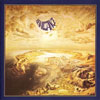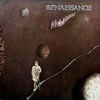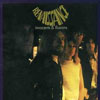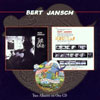

RENAISSANCE : INNOCENTS & ILLUSIONS
Disc One : Renaissance(46:39)
- Kings and Queens
- Innocence
- Island
- Wanderer
- Bullet
Bonus Tracks : - Island
- The Sea
Disc Two : Illusion (61:04)
- Love Goes On
- Golden Thread
- Love Is All
- Mr. Pine
- Face of Yesterday
- Past Orbits of Dust
Bonus Tracks : - Shining Where the Sun Has Been
- All the Fallen Angels
- Prayer for Light
- Walking Away
Label : Sanctuary Records
Release Year : 1969 (Renaissance) / 1971 (Illusion)
Review for Renaissance (AllMusic) : The original group's debut album was a then-groundbreaking meld of progressive rock with classical and jazz influences. The album is a little clunky by today's standards, and far druggier than the later group in its ambience (cofounders Keith Relf and Jim McCarty were the heavily psychedelic half of the final lineup of the Yardbirds, which made them anathema to Jimmy Page), but vocalist Jane Relf had a striking individual style, and the classical influence was unique for its time.
Review for Illusion (AllMusic) : The second Renaissance album is the least-known in the group's entire output, having originally failed to get released anywhere except Germany. Although it is a much less bold, more smoothly commercial album, Illusion was also the work of at least three distinctly different lineups representing the group, Jim McCarty dropping out from playing after an illness, and Keith Relf and Louis Cennamo exiting the performing lineup soon after, while Jane Relf played some gigs with John Hawken acting as leader of a new ensemble. It was around this time that the words of lyricist Betty Thatcher started turning up in the group's work and on this album, and guitarist Michael Dunford started writing as well. The results here aren't quite as hard rocking as the previous album - acoustic guitars supplant electric and Jane Relf's vocals are hooked around a mix of art rock and art pop melodies, without any trace of the psychedelic or freakbeat echoes of the previous album's work. One song, "Mr. Pine," contains an instrumental bridge that Dunford later folded into "Running Hard" in a more developed guise. The lighter textures anticipate the sound of the later lineup of the group, while some of the pop-oriented material harkens back to what Relf and McCarty had in mind for a sound in 1969.

